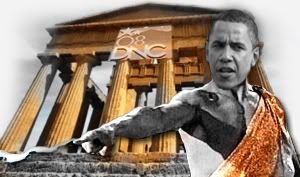- Sep 19, 2011
- 28,417
- 10,005
- 900
- Thread starter
- #61
You wrote"
We need to get the percentage of total income taken by the richest 1% down to something like 8 or 9%, instead of 25%. Only then will real prosperity be restored."
FACTS.
Please down load this spreadsheet from the IRS...
SOI Tax Stats - Individual Statistical Tables by Size of Adjusted Gross Income
ONCE you do if you are an honest person check my numbers and correct me if these are incorrect:
There were 142,245,060 returns filed in 2008.
To reach your statement that "top 1%....instead of 25%."
1 % of returns equaled 1,424,506.
The tables didn't break down to 1% so I used the below:
$500K over $10m incomes from 898,912 returns.
These 898,912 returns gross income was reported as $1,468,581,384,000
Total income reported to IRS by all returns: $8,262,860,170,000
The % of total gross $8.2 trillion in income of top 1% returns is 17.77%
NOTE: NOT the 25% you claimed!!! but 17.7%!!!
And the Total taxes paid by top 1% :$342,919,049,000
As a % of income paid by top 1% :23.35%
And these filthy evil, 1%ers... disgustingly ... PAID 33.24% OF all the taxes paid.
So PLEASE refute these FACTS OK?
You were wrong the filthy wealthy bastards have 17% and PAID 33% of total revenue!
We need to get the percentage of total income taken by the richest 1% down to something like 8 or 9%, instead of 25%. Only then will real prosperity be restored."
FACTS.
Please down load this spreadsheet from the IRS...
SOI Tax Stats - Individual Statistical Tables by Size of Adjusted Gross Income
ONCE you do if you are an honest person check my numbers and correct me if these are incorrect:
There were 142,245,060 returns filed in 2008.
To reach your statement that "top 1%....instead of 25%."
1 % of returns equaled 1,424,506.
The tables didn't break down to 1% so I used the below:
$500K over $10m incomes from 898,912 returns.
These 898,912 returns gross income was reported as $1,468,581,384,000
Total income reported to IRS by all returns: $8,262,860,170,000
The % of total gross $8.2 trillion in income of top 1% returns is 17.77%
NOTE: NOT the 25% you claimed!!! but 17.7%!!!
And the Total taxes paid by top 1% :$342,919,049,000
As a % of income paid by top 1% :23.35%
And these filthy evil, 1%ers... disgustingly ... PAID 33.24% OF all the taxes paid.
So PLEASE refute these FACTS OK?
You were wrong the filthy wealthy bastards have 17% and PAID 33% of total revenue!


